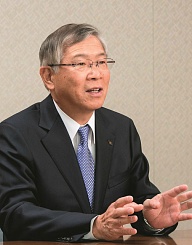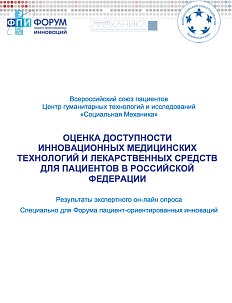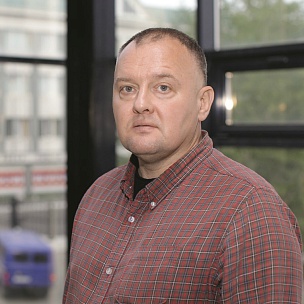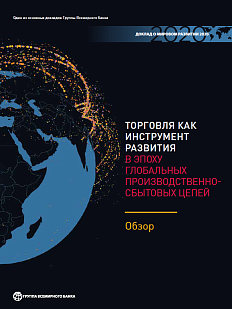Shigeru Murayama, the President of the Japan Association for Trade with Russia and the Newly Independent States (ROTOBO), talks about how to iron out economic fluctuations, increase the competitive attractiveness of the Far Eastern advanced special economic zones (ASEZs), and introduce high-tech Japanese developments to Russia.
Implementation of Cooperation Plan will benefit business and society
How is the Eight-Point Cooperation Plan which Japanese Prime Minister Shinzō Abe proposed to Russian President Vladimir Putin being implemented?
Since Prime Minister Abe presented this plan to President Putin in Sochi in May 2016, over 130 agreements and memoranda concerning JapaneseRussian projects have been concluded. More than half of these are specific in nature and are currently underway, as far as I know.
 The subheading of the Cooperation Plan for innovative reforms in the industry and economy of Russia as a leading country with favourable living conditions highlights the fact that it is not just Russian or Japanese businesses that will benefit, but also Russian society as a whole. The plan aims to improve the quality of life of Russians, and its purpose is to diversify and modernize Russian industry.
The subheading of the Cooperation Plan for innovative reforms in the industry and economy of Russia as a leading country with favourable living conditions highlights the fact that it is not just Russian or Japanese businesses that will benefit, but also Russian society as a whole. The plan aims to improve the quality of life of Russians, and its purpose is to diversify and modernize Russian industry.
Specific examples of cooperation include the establishment of the Japanese Project Promotion Vehicle in the Far East (JPPV) by the Japan Bank for International Cooperation (JBIC) in cooperation with Russian partners, and the opening of a medical rehabilitation centre in Vladivostok by Hokuto Social Medical Corporation together with JGC Corporation. These are projects that have already been implemented.
The development of the business relationship between Japan and Russia still faces various obstacles, including those related to communication, i.e. the language barrier and lack of information support. Under these conditions, it is very important for government agencies in Japan and Russia to support and incentivize business.
We hope to see better infrastructure and an improved investment environment
There is a widespread opinion that the volume of trade between Russia and Japan does not match the real capabilities of the two countries economies. Would you agree with this?
It has been correctly suggested that foreign trade between Japan and Russia does not live up to the true potential of both countries. The reason lies in the structure of JapaneseRussian trade, which is currently characterized by imports of raw materials (oil, LNG, and coal) to Japan from Russia and exports of finished products (for example, cars) in the opposite direction.
Obviously, this kind of trading structure dominated the old era, before globalization processes took over the entire global economy. In addition, trade in goods such as cars and oil depend to a significant extent on world commodity prices and other fluctuations in the economy. Indeed, trade between Japan and Russia saw several sharp drops, for example in 2009 and 2015. In other words, the format of our trade relationship is very outdated and has a very unstable structure.
How can this be fixed?
It is important to support the promotion of Japanese manufacturing companies in Russia, the development of joint manufacturing networks across the two countries, and the expansion of trade in intermediate goods. Something similar happened after the signing of the Plaza Agreement in 1985, when, against the backdrop of a rising yen, many Japanese companies moved their production facilities abroad, particularly to other Asian countries. As a result, extensive production networks global value chains gradually developed between Japan and the countries concerned. The trade in intermediate goods essential to various production processes, such as spare parts, expanded.
Here, we hope to see a further increase in the efforts of Russian federal and local authorities to develop better infrastructure, improve the investment environment, further strengthen investment incentives, and so on.
Three conditions that will accelerate the development of ASEZs in the Far East
Do the changes underway in the Russian Far East correspond to your expectations?
The economic development of the Russian Far East, a region located geographically close to Japan, can exert a huge positive influence on Japanese companies conducting business with Russia. The governments of our countries pay special attention to cooperation in the Far East. The Japanese business community highly appreciates the Russian Governments ambitious policy with respect to the development of the Far East for example the creation of ASEZs and the free port system that has been accelerated in recent years.
I would suggest here that it is important to consider observing three conditions that will enable ASEZs in the Far East to succeed.
Firstly, reducing costs. Thus far, conditions in the Russian Far East have hampered the manufacturing of products capable of competing in international markets in terms of price. Im talking about the high costs associated with logistics and communications as well as the relatively expensive labour. It is important to improve infrastructure and maintain the current rouble exchange rate in order to achieve a reduction in these costs, including staff-related costs.
Secondly, ensuring a concentration of industrial enterprises. Companies, as a rule, are attracted to places where related industries have converged. This helps to reduce transport and communication costs as well as other unavoidable costs associated with business. In this respect, the concentration of industrial enterprises in ASEZs in the Russian Far East is still insufficient, and this makes it difficult to attract Japanese companies when compared with the special economic zones of other countries. The advantage the Russian Far East has is its abundance of valuable natural resources. It would therefore be prudent to create clusters of processing industries, for example petrochemicals, and attract related industries on this basis.
Thirdly, the availability of markets. The products and services created in the ASEZs need a consumer market. Despite the fact that ASEZs seem to be encouraged to attract export-oriented industries, it is dangerous to rely solely on exports. The fact is that rising oil prices and the strengthening of the rouble will decrease the competitiveness of Russian products. In this regard, it remains essential to ensure constant domestic demand.
Ensuring population growth throughout the Russian Far East is not an easy task.
However, by intensively developing local urban areas, primarily Vladivostok, and creating appealing living and working conditions, it will, in my opinion, be possible to attract people to the region and establish a market of 11.5 million people.
This is fully in line with the new concept of the spatial development of Russia and the cities of the future, which President Putin spoke about at SPIEF 2018 and the 8th Urban Forum recently held in Moscow.
Apart from the listed risk factors, how strong is the impact of sanctions?
From my perspective as President of R O TOBO, I can say that we are against the economic sanctions as they impede transactions on the free market. Yes, Japan joined the sanctions against Russia. However, the content of Japanese sanctions can be described as light, and they really have no significant impact on the business conducted between the two countries. It seems to me that Russian officials hold the same opinion.
However, the impact of the US sanctions on JapaneseRussian business is relatively strong. For example, the sanctions list announced by the US Government on 6 April this year includes the leading Russian aluminium company. Russia accounts for approximately 15% of Japanese aluminium imports. This share will be reduced to almost zero on 23 October when the sanctions come into force and this will have a relatively significant impact on Japanese industry, particularly the automotive industry. The sanctions will complicate settlements in dollars and they provide for second-level sanctions imposed by the United States on Japanese companies that continue to do business in defiance of the sanctions.
On 16 July, US President Donald Trump and Russian President Vladimir Putin held a bilateral meeting in Helsinki, a year after their previous meeting.
From the perspective of the Japanese business community, we hope that the dialogue between the US A and Russia will be resumed, and that all of the problems complicating the relationship between them, including sanctions, will be resolved.
The need to attract Japanese SMEs possessing advanced technologies and know-how to Russia
Generally, when economic relations are discussed, we talk about large investment projects. How are small and medium-sized Japanese businesses doing in Russia?
Indeed, the main business exchanges between Japan and Russia have so far involved large companies. The line of products manufactured by Japanese small and medium-sized enterprises is relatively narrow. However, there are many such SMEs that have developed world-class and even unique technologies. In the future, we hope to see Japanese SMEs that possess these advanced technologies and know-how conducting business with Russia.
What is hindering the development of small but high-tech companies?
Their weakness is that they usually face limitations in terms of staff, time, and funds. Accordingly, there is a limit to what they can achieve on their own and they need support from the government and public agencies. Last years INNOPROM 2017 was attended by a large number of Japanese small and medium-sized enterprises, and ROTOBO, in con junction with JETRO [Japan External Trade Organization Ed.], organized Business Matching between Japanese and Russian S MEs to support the movement of these enterprises towards Russia. I think it is important to continue these attempts.
Furthermore, for companies located in the coastal prefectures close to the Sea of Japan areas such as Hokkaido, Niigata, Toyama, and Tottori Russia, lying literally on the other shore, can become an important business partner. Efforts to revitalize JapaneseRussian exchanges at the regional level, especially in the Far East, are important.
Together we can find new ways to cooperate in the digital reality
Which technologies implemented in Japan would be particularly useful in Russia?
The formation of a super-smart society and the creation of new values based on digital technologies are currently being promoted in Japan as part of the Society 5.0, Related Industries concept. In Russia, the Digital Economy government programme was adopted in 2017. The digitalization of industry and society is a prerequisite for survival in a rapidly changing global economy. Neither Japan nor Russia will be able to survive if they miss this wave. In September 2017, the countries signed a joint statement on cooperation in the digital economy, and adopted a joint action plan for cooperation in this field in May this year. The Japanese business community, probably much like the Russian business community, supports this initiative.
The practical cooperation between Japan and Russia in this area is currently developing in three main areas. The first aims to improve labour productivity and competitiveness through digitalization of the production sector. The second involves the creation of smart cities and the formation of a favourable urban environment. Finally, the third area entails the use of digital technologies in medicine.
I hope that we will be able to find new ways to live and cooperate in the digital reality together by combining the know-how and technological solutions of Japanese companies with the excellent human resources and industrial infrastructure to be found in Russia.
Source: EEF 2018 Official Magazine






